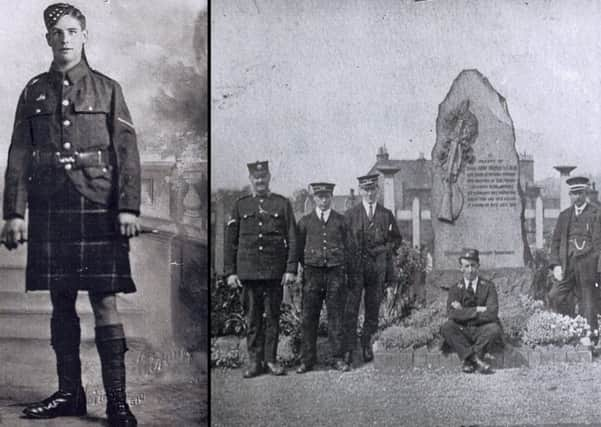Plaque to honour Scots railwayman awarded the VC


A plaque will be unveiled next month in memory of Sergeant John Meikle, who singlehandedly took out a German machine-gun post in the First World War.
The 19-year-old was armed with only a pistol and the walking stick he liked to carry when he achieved the feat during the second battle of the Marne in 1918.
Advertisement
Hide AdAdvertisement
Hide AdThe memorial at Nitshill Station in Glasgow is one of seven being funded by the Railway Heritage Trust to commemorate the seven British rail workers who received the highest military honour for gallantry – all in the Great War.
The ceremony on 18 October is due to be attended by Meikle’s nephews, John and Alan.
The plaque will replace a stone monument erected at the station in 1920 which was removed in 1971 after being vandalised.
It was moved to Dingwall, where Meikle’s regiment had been based.
A separate memorial plaque in Meikle’s old school in Nitshill was presented to Dingwall Museum in 1997 after it closed.
The new plaque is part of the trust’s work to restore war memorials across the rail network.
Executive director Andy Savage said: “These seven men were in many ways the bravest of the brave, but have not been commemorated on the railway. It is therefore worth doing something special for them.”
Born in Kirkintilloch as the fifth of 12 children, Meikle became a station clerk at Nitshill for the Glasgow, Barrhead and Kilmarnock Railway after leaving school.
Advertisement
Hide AdAdvertisement
Hide AdHe was knocked back from his first attempt to enlist as a teenager, and reportedly asked his mother to cook him porridge to make him larger and stronger.
He was eventually accepted by the 4th Battalion of the Seaforth Highlanders in 1916 when he was 16 – after pretending to be 19, the minimum age for service abroad.
The soldier was decorated a year after being sent to France, receiving the Military Medal in October 1917 after the overthrow of the Menin Road bridge near Ypres.
In July 1918, when the company he commanded was held up by machine-gun fire near the River Marne, east of Paris, he advanced alone across 150 yards of open ground to destroy the German position.
Later, he again went forward alone towards the enemy lines, but was killed as he approached another machine-gun post.
However, the progress he made enabled his comrades to take the position.
The VC he was awarded was to go to one of the youngest of the medal’s 628 recipients in the war.
The original citation read: “He emptied his revolver into the crews of the two guns and put the remainder out of action with a heavy stick.
“Very soon afterwards, Sgt Meikle seized the rifle and bayonet of a fallen comrade and again rushed forward against the gun crew, but was killed.”